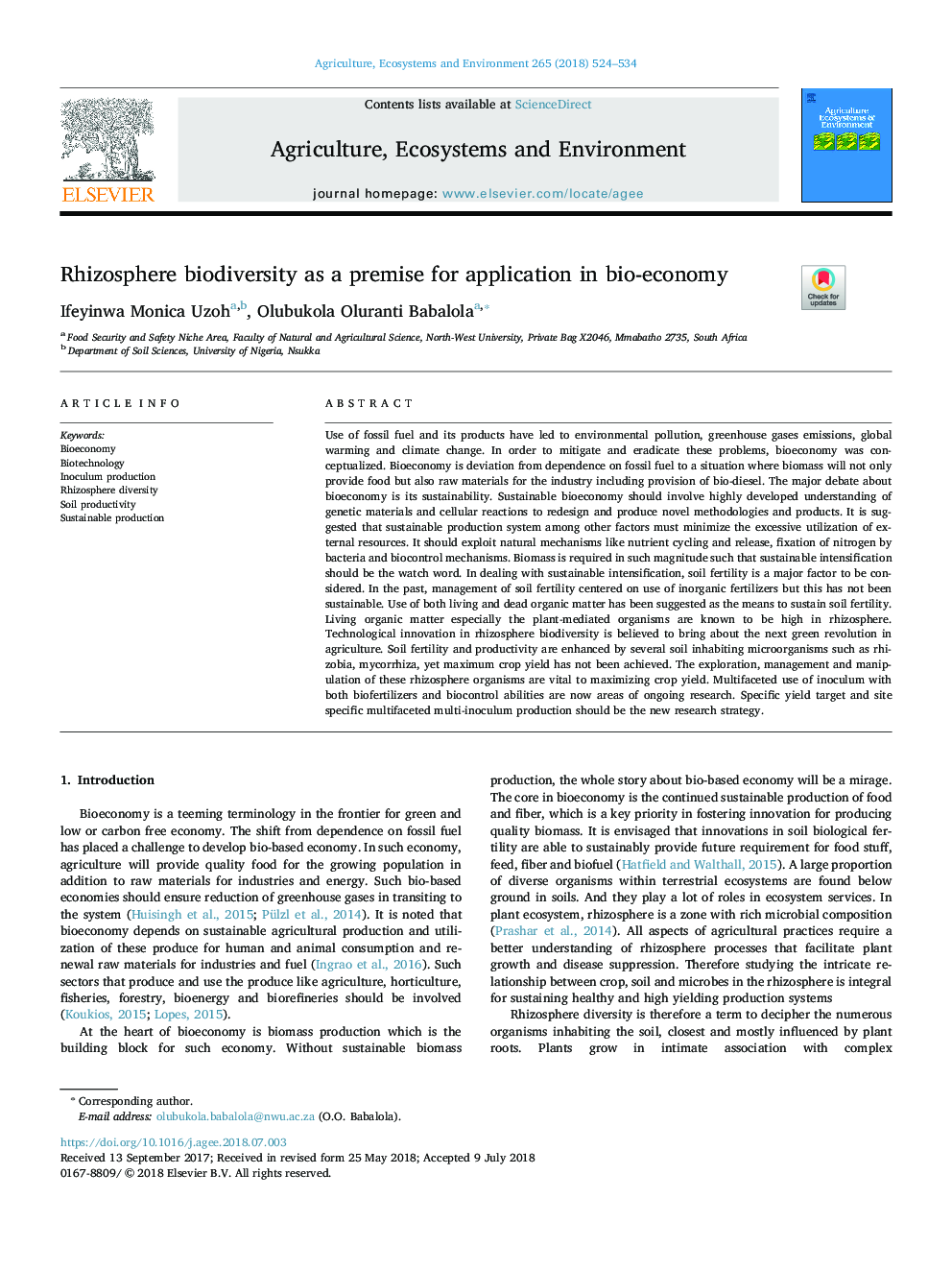| Article ID | Journal | Published Year | Pages | File Type |
|---|---|---|---|---|
| 8487008 | Agriculture, Ecosystems & Environment | 2018 | 11 Pages |
Abstract
Use of fossil fuel and its products have led to environmental pollution, greenhouse gases emissions, global warming and climate change. In order to mitigate and eradicate these problems, bioeconomy was conceptualized. Bioeconomy is deviation from dependence on fossil fuel to a situation where biomass will not only provide food but also raw materials for the industry including provision of bio-diesel. The major debate about bioeconomy is its sustainability. Sustainable bioeconomy should involve highly developed understanding of genetic materials and cellular reactions to redesign and produce novel methodologies and products. It is suggested that sustainable production system among other factors must minimize the excessive utilization of external resources. It should exploit natural mechanisms like nutrient cycling and release, fixation of nitrogen by bacteria and biocontrol mechanisms. Biomass is required in such magnitude such that sustainable intensification should be the watch word. In dealing with sustainable intensification, soil fertility is a major factor to be considered. In the past, management of soil fertility centered on use of inorganic fertilizers but this has not been sustainable. Use of both living and dead organic matter has been suggested as the means to sustain soil fertility. Living organic matter especially the plant-mediated organisms are known to be high in rhizosphere. Technological innovation in rhizosphere biodiversity is believed to bring about the next green revolution in agriculture. Soil fertility and productivity are enhanced by several soil inhabiting microorganisms such as rhizobia, mycorrhiza, yet maximum crop yield has not been achieved. The exploration, management and manipulation of these rhizosphere organisms are vital to maximizing crop yield. Multifaceted use of inoculum with both biofertilizers and biocontrol abilities are now areas of ongoing research. Specific yield target and site specific multifaceted multi-inoculum production should be the new research strategy.
Related Topics
Life Sciences
Agricultural and Biological Sciences
Agronomy and Crop Science
Authors
Ifeyinwa Monica Uzoh, Olubukola Oluranti Babalola,
